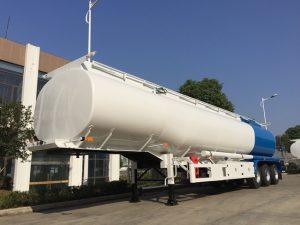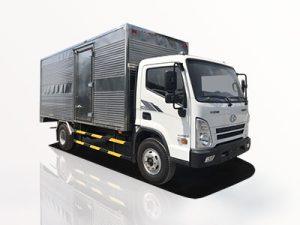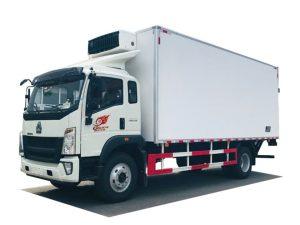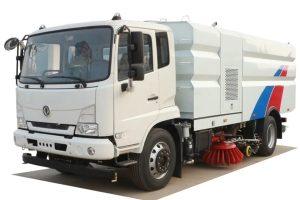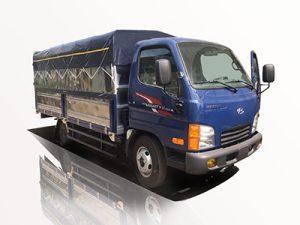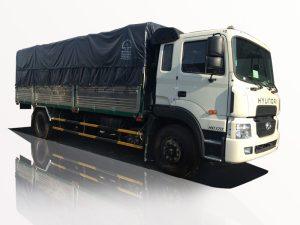Monday to Saturday - 8:00 -17:30
CNG Trash Trucks: Revolutionizing Waste Management
As the world moves towards more sustainable solutions, CNG (Compressed Natural Gas) trash trucks are emerging as a pivotal component in modern waste management systems. These vehicles offer an environmentally friendly alternative to traditional diesel-powered trucks, helping municipalities reduce their carbon footprint and operating costs.
Table of Contents
- What is CNG?
- Benefits of CNG Trash Trucks
- CNG vs. Diesel: A Comparative Analysis
- Examples of CNG Trash Trucks
- Maintenance of CNG Trash Trucks
- Regulations and Compliance
- Choosing the Right CNG Trash Truck for Your Fleet
- Case Studies: Cities Using CNG Trash Trucks
- The Future of CNG Trash Trucks
- FAQs
What is CNG?
Compressed Natural Gas (CNG) is a cleaner burning alternative to traditional fossil fuels like gasoline and diesel. CNG primarily consists of methane, which, when burned, emits less harmful pollutants into the atmosphere. This makes it an ideal fuel source for various vehicles, particularly those used in waste management such as trash trucks.
The Composition of CNG
CNG is primarily composed of methane (CH4) and is derived from natural gas, which is extracted from underground reserves. It can also be produced from renewable sources through the process of anaerobic digestion.
How CNG is Stored
CNG is stored in high-pressure cylinders at about 3000 to 3600 psi, making it efficient for transportation. These cylinders are installed in specialized compartments in CNG trash trucks, ensuring safety and ease of use.
Benefits of CNG Trash Trucks
CNG trash trucks offer a variety of advantages over traditional diesel-powered vehicles, which can significantly enhance the efficiency of waste management operations.
Environmental Benefits
One of the most significant benefits of CNG trash trucks is their reduced environmental impact. They emit fewer greenhouse gases and pollutants, helping communities meet environmental regulations and improve air quality.
Cost Efficiency
CNG is generally less expensive than diesel, translating to lower fuel costs over time. Additionally, CNG trucks generally require less engine maintenance, which can further reduce overall operating costs.
Noise Reduction
CNG trucks operate more quietly than their diesel counterparts, leading to less noise pollution in residential areas during early morning or late-night pickups.
CNG vs. Diesel: A Comparative Analysis
Understanding the differences between CNG and diesel trash trucks is crucial for municipalities looking to invest in their waste management fleets.
| Feature | CNG Trash Trucks | Diesel Trash Trucks |
|---|---|---|
| Fuel Cost | Lower | Higher |
| Emissions | Lower | Higher |
| Noise Level | Quieter | Louder |
| Maintenance | Lower | Higher |
Overall Cost Comparison
While the initial purchase price of CNG trucks may be higher, the long-term savings in fuel and maintenance can easily offset this difference, making CNG a more attractive option in the long run.
Examples of CNG Trash Trucks
Several manufacturers have developed reliable CNG trash trucks that are now widely used by waste management companies.
Popular CNG Trash Truck Models
- Ford F-550 Super Duty: Known for its durability and performance, this model has been adapted to run on CNG for waste management.
- Peterbilt Model 320: A popular choice among waste management companies, this truck combines efficiency with a high payload capacity.
- Kenworth T370: This model provides excellent visibility and maneuverability, ideal for urban waste collection.
Maintenance of CNG Trash Trucks
Regular maintenance is essential to ensure the longevity and efficiency of CNG trash trucks.
Routine Maintenance Tips
- Check the CNG fuel system periodically for leaks.
- Inspect high-pressure fuel tanks, ensuring they are secure and undamaged.
- Monitor engine performance and address any issues promptly.
Scheduled Maintenance
Municipalities should follow a scheduled maintenance plan that includes regular inspections and servicing at certified facilities to keep the trucks running optimally.
Regulations and Compliance
As CNG becomes more popular, waste management companies must ensure compliance with local, state, and federal regulations pertaining to emissions and safety standards.
Environmental Regulations
CNG trucks typically meet stricter environmental standards than diesel vehicles, making them a preferred choice for municipalities aiming to reduce their ecological impact.
Safety Standards
Regulations concerning CNG vehicle safety focus on handling and storage, requiring industry best practices to prevent accidents and ensure the safety of both operators and the public.
Choosing the Right CNG Trash Truck for Your Fleet
When selecting a CNG trash truck, several factors should be considered to ensure it meets the specific needs of your waste management operation.
Factors to Consider
- Payload Capacity: Consider the truck’s ability to carry the waste types you typically collect.
- Fuel Efficiency: Look at the truck’s miles per gallon performance on CNG.
- Service Availability: Ensure there are maintenance facilities nearby that specialize in CNG vehicles.
Case Studies: Cities Using CNG Trash Trucks
Several cities have successfully integrated CNG trash trucks into their waste management fleets, leading to tangible benefits.
Case Study 1: Los Angeles, CA
Los Angeles has expanded its CNG fleet significantly, allowing the city to reduce emissions by 25% over the past several years while also cutting down on fuel costs.
Case Study 2: Denver, CO
Denver has invested in CNG trash trucks to support its sustainability goals, reporting a decrease in air pollution levels and positive feedback from residents regarding noise reduction.
The Future of CNG Trash Trucks
The future of CNG trash trucks looks promising as technology continues to evolve, enhancing efficiency and environmental performance.
Innovations on the Horizon
Future developments may include advancements in CNG storage systems and more efficient engines that further reduce emissions and increase fuel economy.
Global Trends
As more cities worldwide move towards greener solutions, the adoption of CNG trash trucks is expected to rise, influencing global waste management practices.
FAQs
What are the main advantages of using CNG trash trucks?
CNG trash trucks offer environmental benefits, lower fuel costs, reduced noise levels, and less engine maintenance compared to diesel trucks.
Are CNG trucks safe to operate?
Yes, CNG trucks are designed with safety features and comply with strict regulations regarding the handling and storage of natural gas.
How can municipalities finance the transition to CNG trucks?
Municipalities can explore grants, government incentives, and partnerships with private organizations to help finance the purchase of CNG trash trucks.
What is the lifespan of a CNG trash truck?
Typically, CNG trash trucks have a lifespan comparable to diesel trucks, often lasting between 10 to 15 years with proper maintenance.
Can CNG trash trucks run on renewable natural gas?
Yes, CNG trucks can operate on renewable natural gas, which further enhances their environmental benefits by offering a path to carbon-neutral operations.
How does the maintenance of CNG trucks differ from diesel trucks?
CNG trucks have specialized maintenance needs related to their fuel systems, but overall, they tend to require less frequent routine maintenance than diesel trucks.


